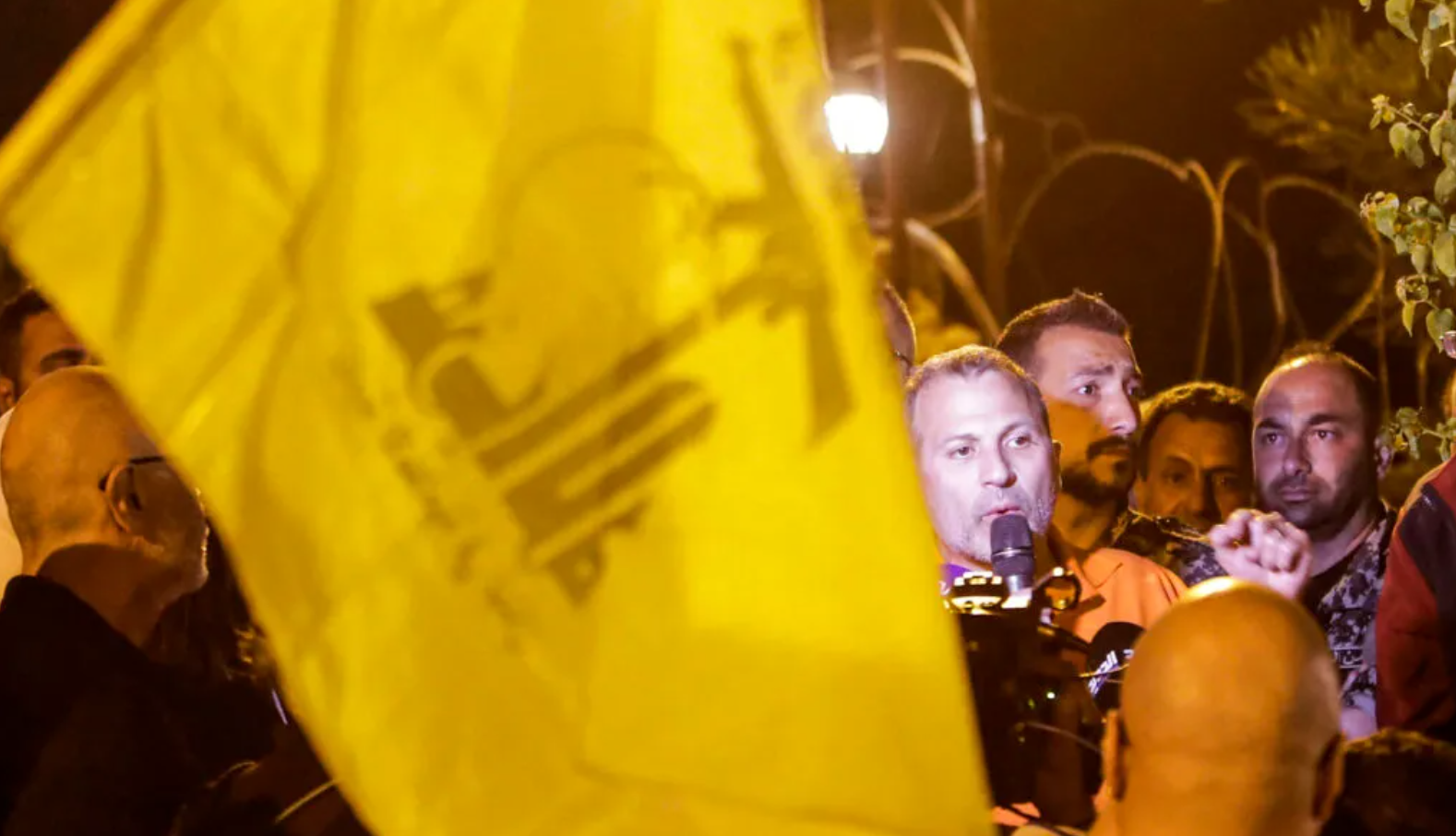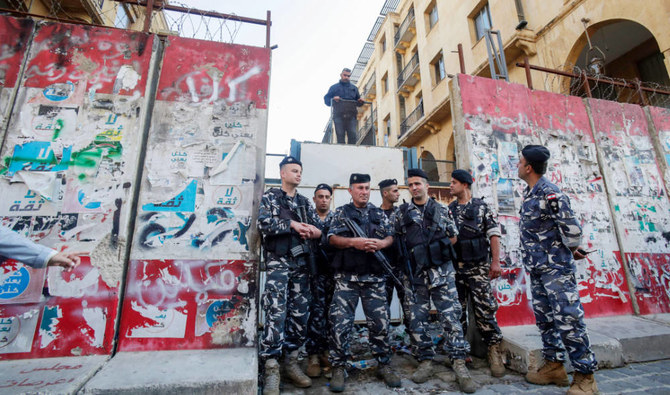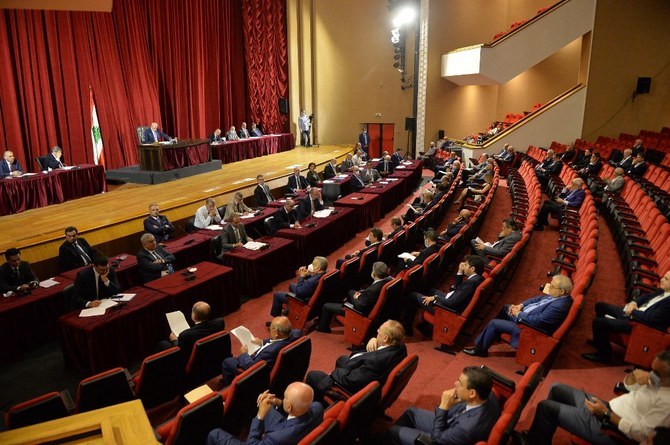MP Farid Haykal el Khazen confirmed on Monday to LBCI that he is not an ally of Hezbollah and will remain independent …

by Dr AmiraDr Amira Abo el-Fetouh -- middleeastmonitor -- The whole world has watched the parliamentary elections in Lebanon, as if they are taking place in their countries due to the nature of Lebanon and its important strategic location, adjacent to Israel, as well as the presence of Hezbollah, one of Iran's most important arms in the region, given its overwhelming influence in Lebanon. This has made Lebanon into a State within a State, with Iran as the de facto ruler, holding the keys and the wheel of the government. This is in addition to the armed militia it possesses in the country, armed with missiles, weapons, military equipment and fighters, amounting to over 100,000 according to Hezbollah's Secretary-General, Hassan Nasrallah, who added that Iran pays them their pension, food, drink, treatment and housing; everything is provided by Iran. This is what caused the Lebanese people to say that Iran occupies Lebanon and that it needs to be liberated and gain independence from Iran. The Lebanese words are not coming out of nowhere, or merely words for the sake of words; it comes from their anger at Hezbollah's infiltration of all parts of Lebanon. They were even backed by one of the Iranian political officials in Iran, who said, "Iran occupies four Arab capitals, Lebanon, Iraq, Syria and Yemen." Hezbollah had previously stormed and occupied Beirut and Al-Jabal in the events of 7 May, 2008, with what was known as the "black shirts".
Herein lies the importance of the recent parliamentary elections, which some considered a key stage in Lebanon, especially as they came amid a severe economic crisis, bank bankruptcy, loss of Lebanese deposits, increase in inflation rates, massive poverty and a significant decline in its national currency, which lost about 90 per cent of its value, causing the Lebanese people to become frustrated and refrain from participating in the elections and voting. The people have grown tired and disgusted with the ruling clique, which will be brought back in the elections. This is because the sect leaders do not change or step down until they die, and then their children inherit their seats, and they are recycled. This is why the participation rate in these elections was much lower this year, compared to the past elections in 2018, even amongst the Shia sect, despite Nasrallah and Berri urging their Shia supporters to participate in large numbers and tempting them with money.

By Najia Houssari -- arabnews.com -- BEIRUT: Lebanese authorities on Monday began removing concrete barriers around the country’s parliament building after the election of former protesters as MPs. The security measures had been put in place at the outbreak of massive anti-government protests in 2019. They are to be relaxed following the election of a dozen reformist newcomers to the 128-member legislature, including some who had taken part in the protest movement. Some of the new MPs had called for the restrictions to be eased before they attended the first session of the new parliament. Interior Minister Bassam Mawlawi attended the start of the work yesterday afternoon. The clearing will be completed before the next parliament session is held, a statement from House Speaker Nabih Berri’s office said.
The move comes after the election of 15 MPs from the Forces of Change group, which was demonstrating in the streets around parliament, in addition to a number of independent MPs. Beirut MP Ibrahim Mneimneh, from the Forces of Change, said: “There is no need for the barriers placed around the people’s house because it is for the people. They are needless barriers.” He said that the measures decided by Berri were the result of the traditional ruling forces realizing “the decline of their popularity, so they decided to respond to the popular demands.”
MP Waddah Sadiq, a former protester, said the fences around parliament are a separation wall. “Today, parliament represents the people who demand change, so they decided to ease the procedures,” Sadiq sad. Sadiq said that the economic and living crises “are increasing, and people may turn to a state of rejection again. We need the pressure to address them.” He said that the previous government did not take any effective handling measures. The plan approved by the government included neither recovery nor economy, said the MP. “Therefore, we are entering a difficult phase and we will be on the side of the people.”

By Najia Houssari - arabnews.com -- BEIRUT: Newly elected reformist MPs in Lebanon are planning strategies following election breakthroughs that grant them significant sway in the parliamentary balance of power. Thirteen reformist MPs in Lebanon who entered the legislative race on the values of the 2019 anti-establishment uprising, as well as 21 independent MPs, have entered the newly elected Lebanese Parliament. Analysts have added up MPs to figure out the size of the parliamentary blocs, which are divided between sovereign blocs and pro-Hezbollah groupings. Figures show that elected MPs may be positioned within 13 blocs divided into two opposite larger camps, forming the 128-MP Parliament.
The sovereign MPs can be classified based on their previous positions. A total of 68 MPs are opposed to Hezbollah. They include members from the Lebanese Forces Party, the Progressive Socialist Party, the Islamic Group and the Lebanese Phalanges Party, as well as independents and reformists. Meanwhile, the pro-Hezbollah camp includes the party itself, the Amal Movement, the Free Patriotic Movement, the Marada Movement, the Tashnaq Party and Al-Ahbash, for a total of about 60 MPs. There is much speculation about how the new independent MPs will deal with upcoming events, and how they will position themselves on the parliamentary map.
A political observer told Arab News: “We will see the true colors of every MP when topics related to core issues are discussed.” The observer added: “Will these MPs change their stance regarding Hezbollah’s illegal weapons, although some have avoided addressing this sensitive issue in the past? Will these MPs be able to form a unified bloc that can influence decisions within Parliament, or will they remain independent, each working alone?”
Khazen History


Historical Feature:
Churches and Monasteries of the Khazen family

St. Anthony of Padua Church in Ballouneh
Mar Abda Church in Bakaatit Kanaan
Saint Michael Church in Bkaatouta
Saint Therese Church in Qolayaat
Saint Simeon Stylites (مار سمعان العامودي) Church In Ajaltoun
Virgin Mary Church (سيدة المعونات) in Sheilé
Assumption of Mary Church in Ballouneh
1 - The sword of the Maronite Prince
2 - LES KHAZEN CONSULS DE FRANCE
3 - LES MARONITES & LES KHAZEN
4 - LES MAAN & LES KHAZEN
5 - ORIGINE DE LA FAMILLE
Population Movements to Keserwan - The Khazens and The Maans
ما جاء عن الثورة في المقاطعة الكسروانية
ثورة أهالي كسروان على المشايخ الخوازنة وأسبابها
Origins of the "Prince of Maronite" Title
Growing diversity: the Khazin sheiks and the clergy in the first decades of the 18th century
Historical Members:
Barbar Beik El Khazen [English]
Patriach Toubia Kaiss El Khazen(Biography & Life Part1 Part2) (Arabic)
Patriach Youssef Dargham El Khazen (Cont'd)
Cheikh Bishara Jafal El Khazen
Patriarch Youssef Raji El Khazen
The Martyrs Cheikh Philippe & Cheikh Farid El Khazen
Cheikh Nawfal El Khazen (Consul De France)
Cheikh Hossun El Khazen (Consul De France)
Cheikh Abou-Nawfal El Khazen (Consul De France)
Cheikh Francis Abee Nader & his son Yousef
Cheikh Abou-Kanso El Khazen (Consul De France)
Cheikh Abou Nader El Khazen
Cheikh Chafic El Khazen
Cheikh Keserwan El Khazen
Cheikh Serhal El Khazen [English]
Cheikh Rafiq El Khazen [English]
Cheikh Hanna El Khazen
Cheikha Arzi El Khazen
Marie El Khazen